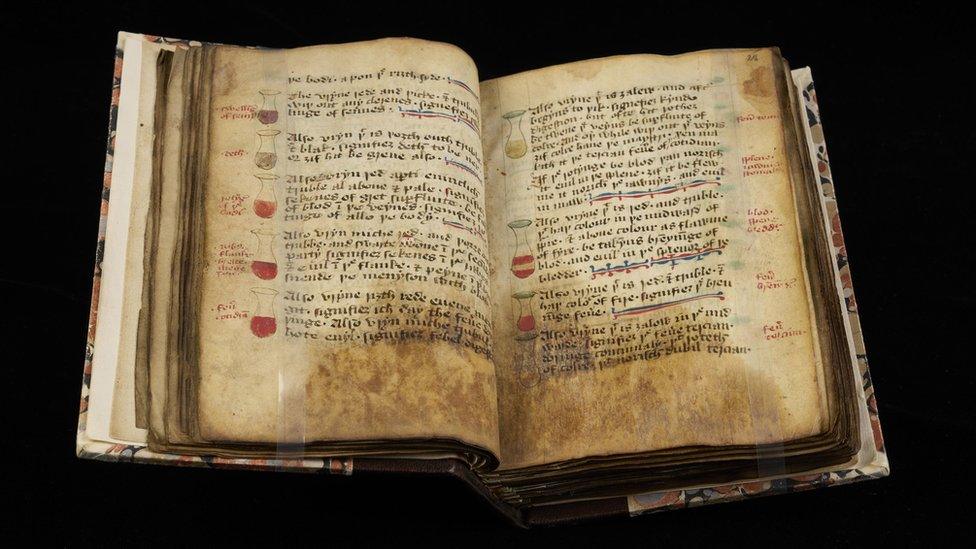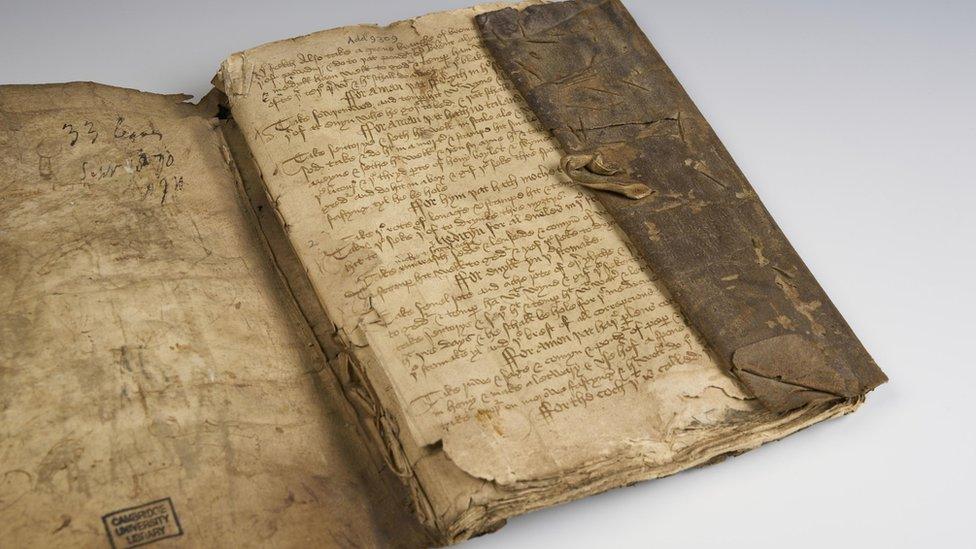Cambridge University Library to publish medieval medical cures
- Published

The manuscripts mostly date back to the 14th and 15 centuries
Stuffing a puppy with snails and baking an owl are some of the medieval medical cures which will be shared online by Cambridge University Library.
More than 180 medieval manuscripts will be digitised, catalogued and conserved over the next two years as part of the Curious Cures project.
The oldest manuscript dates back to 1,000 years ago.
Project leader James Freeman said it was "a reminder of the pain and precarity of medieval life".
The treatments listed for gout include baking an owl then grinding it into a powder and stuffing a puppy with snails and sage royal then roasting over a fire before making a salve with the fat.
To treat cataracts - described as a "web in the eye" - one recipe recommended taking the gall bladder of a hare and some honey, mixing them together and then applying it to the eye with a feather over the course of three nights.

The manuscripts contain about 8,00 unedited medical recipes
The texts are from the collections of the University Library, Fitzwilliam Museum and a dozen Cambridge colleges.
Mr Freeman said: "For all their complexities, medieval medical recipes are very relatable to modern readers.
"Many address ailments that we still struggle with today: headaches, toothache, diarrhoea, coughs, aching limbs.
"They show medieval people trying to manage their health with the knowledge that was available to them at the time - just as we do.
"Behind each recipe, however distantly, there lies a human story: experiences of illness and of pain, but also the desire to live and to be healthy."

Find BBC News: East of England on Facebook, external, Instagram, external and Twitter, external. If you have a story suggestion email eastofenglandnews@bbc.co.uk, external